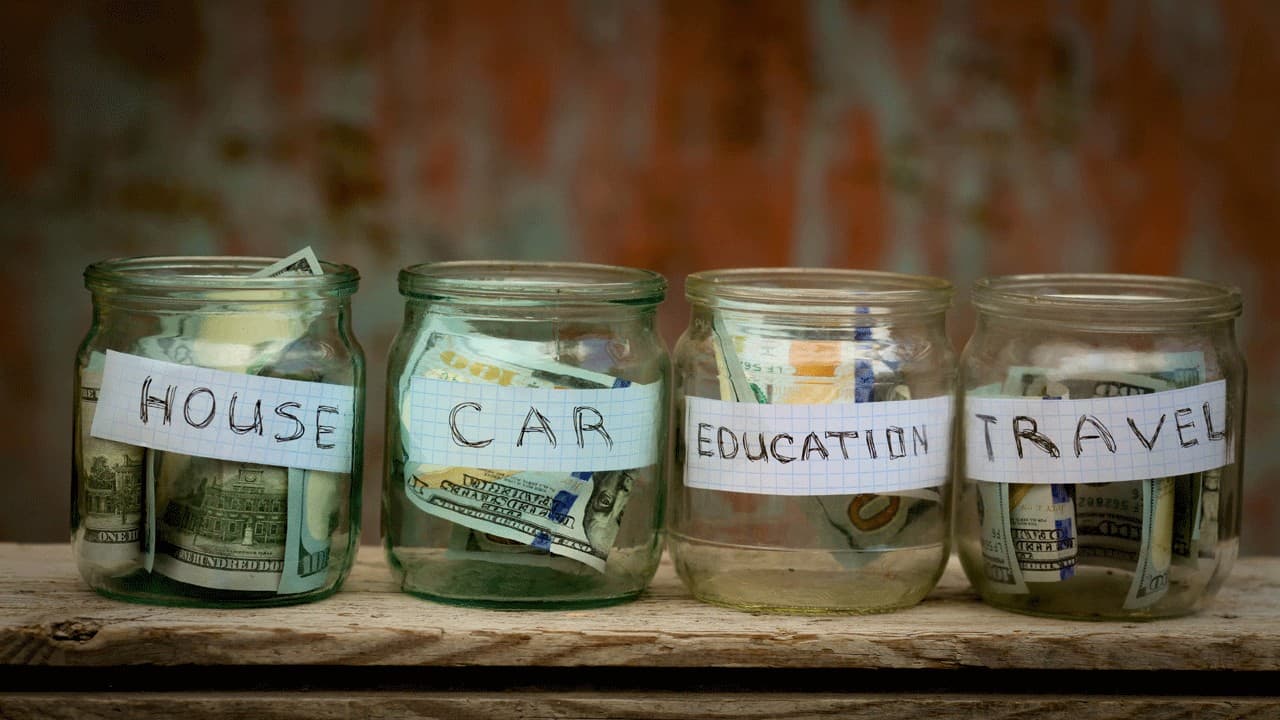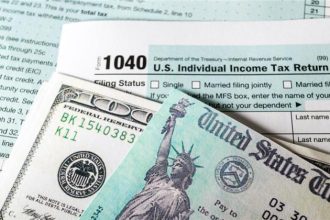THIS POST MAY CONTAIN AFFILIATE LINKS. PLEASE SEE MY DISCLOSURES. FOR MORE INFORMATION.
In an ideal world, we’d all experience financial stability, knowing that we have security both now and in the future as we work to achieve our goals. Unfortunately, the world can be unpredictable. From unforeseen health developments to loss of income due to being laid off, there’s no shortage of scenarios where we can end up having to ration limited resources to try to get by for a period of time.
If you find yourself facing such a development, the most important step is to return to your budget to ensure that sustaining the basics of your lifestyle is possible for however long you anticipate you may experience this financial crisis.
We’ve worked hard to compile this list of practical budgeting tips (some common-sense ones as well as those offered by those who have been in a financial crisis) to equip you with what you need during these difficult times. Here are 16 practical tips for balancing your budget in a crisis.
#1. Start From Scratch With a Brand New Budget

Working with your current budget is an excellent way to run out of money fast. When you’re facing a financial crisis, it’s critical that you start from scratch with an entirely new budget.
Start at square one, assessing any income you have, returning to the bare bones living expenses that you absolutely have to pay, and considering any bills you’re behind on or debts you have. It will look much more sparse than the current budget you have, but it will get you by.
#2. Distinguish Clearly What Are Needs and What Are Wants


There are lots of things in our budget that we consider essential that aren’t truly needed. This might include entertainment, small comforts like candles, and other similar items.
Now’s the time to understand what is a want and what is absolutely vital to your safety and health at this point. Any expense that you can’t afford right now will just set you back further and put you in a more precarious financial situation.
#3. Ditch Saving and Investing for the Time Being


Saving and investing are key to financial stability. However, this type of advice is only helpful when you already have some financial security. When you’re dealing with a crisis, saving and investing is a privilege you no longer have.
If you have any investments or savings automatically being taken out of your accounts, pause them until you can afford to be saving and investing your money.
#4. Reach Out to Creditors to Explain Your Current Situation


Experiencing a financial crisis can greatly limit your ability to pay off your debt while you’re trying to make sure you can afford things like rent, groceries, and other essentials. Still, you don’t want your current debts to grow with all the late fees, interest, and other penalties that will undoubtedly be tacked on.
Reach out to creditors to explain your current financial situation and see if there’s anything they can do to ease your burden. Many companies are willing to work with borrowers, which can be of great benefit to you during this time.
#5. Greatly Reduce Credit Card Use


The last thing you want to do when you’re trying to keep track of your finances and ensure you’re not digging a deeper hole is use your credit card.
It’s important to reduce your credit card use as much as possible and only use it sparingly to keep cards active and to keep your credit score afloat. Only use credit if you have no other alternatives and need to rely on it to survive.
#6. Consider What You Can Pull Money From and What You Can’t


More often than not, we have some types of assets that we can sell off to access the money we need in a pinch. That said, there are certain types of accounts you never want to pull money out of, like your retirement accounts.
As you’re trying to figure out your new budget (and if you’re severely lacking income), consider which accounts you can pull money from and which investments are best left untouched.
#7. Work on Short-Term Financial Goals


During a crisis, the future is uncertain. So, don’t worry too much about that. Instead, set short-term goals. For example, maybe you want to make sure you have enough money set aside to pay certain bills.
Setting this goal ensures you can work towards it so that you’re not facing even bigger problems later on. More importantly, short-term goals that you can reach will keep you sane and confident until you’re back on your feet.
#8. Ask Yourself, Where Can You Get More Money to Deal With Your Crisis?


If you don’t have enough income to match the expenses in your budget, you need to bring more income in ASAP. While this might seem like an obvious statement, too many don’t know where to begin.
If you can, try to pick up a part-time job to help with expenses. If you have talents or services people are willing to pay for, consider establishing yourself online or locally to put those abilities to use. You may even want to look for things you can do during your downtime like taking surveys. Every little bit helps!
#9. Assess Your Situation Weekly


Until you know you have enough money to cover your monthly expenses, you have to return to your budget weekly to stay on track. Sit down with your budget and determine if anything has changed.
If it has, make sure to make a note of it so you know how much money you have coming in and how much you have going out. It’s also crucial that you keep tabs on any unpaid bills and upcoming ones so you’re aware of any potential issues in the near future.
#10. Pull Money Out of CDs and Other Low-Risk Investments First


If you do have to pull money out of any of your investments, it’s best to go with investments like CDs or money market accounts. These will incur the fewest tax consequences and won’t likely put you back in terms of your future plans.
If you need more, only start pulling out of your other accounts as needed. Just make sure you understand how selling off certain assets will affect you come tax time.
#11. Get Comfortable With Free, Used, and Deeply Discounted


A crisis requires you to adjust to a new lifestyle for as long as the crisis lasts. If you can find freebies like free skincare products or even free furniture, these will help you get through it while saving every penny possible. What you can’t get free, purchase used as this will help you save on essentials that would otherwise cost top dollar elsewhere.
After implementing these two tips, always use coupons and rebates to get good discounts and the stuff you’re unable to find for free or buy used.
#12. Reduce Spending on Essentials Where Possible


There are going to be non-negotiable areas of your budget where money has to be spent, like on insurance. But during a crisis, you may be able to reduce some of these necessary expenses.
For example, switching to a different auto insurance policy may help you save money, and reaching out to your internet provider to find a cheaper plan can lower the cost of your utilities. If there’s a chance to save on things you have to pay for, take it!
#13. Suspend Autopay on All of Your Bills


Autopay is something that’s normally useful but can quickly become a nightmare if there’s more money withdrawn out of your account than you have. When you set up your budget, don’t forget to turn off autopay on any and all bills.
If the time comes when you’re unable to afford some of them, you can make sure you’re allocating all of your available resources to the bills that matter most.
#14. Don’t Be Afraid to Reach for Support From the Government


Government support is there for people who are struggling. Whether it’s discounted housing or food benefits, see what might be available to you during this difficult time.
There’s no shame in reaching out for help, and it can do wonders to give you a sense of security and reduce your financial burden until you get back to where you want to be.
#15. Tap Into Major Investments If You Have Them


Do you currently own a house or have a car that could prove valuable at this point in time? Whether you’re getting an equity loan or selling a nice car for something a bit cheaper, major investments like these can always be leveraged to help you tap into cash when you need it most.
Just make sure you play it smart so you don’t end up risking these investments along the way.
#16. Ask for Help From Friends and Family


Most of us don’t like to do it, but asking for help from friends and family is sometimes necessary if you’ve exhausted all of your resources and you don’t know where else to turn.
Explain your situation to those you trust most to see if they can help in any way at all. It never hurts to ask, and some people can be surprisingly generous when people they know are going through a tough time.
Dave Ramsey Baby Steps


Using Dave Ramsey’s Baby Steps is great for getting your finances back on track.
But you could do better with a few simple tweaks to his system.
MAKING DAVE RAMSEY’S BABY STEPS BETTER
Double Your Money Fast


Are you in need of money right now?
If you need cash in 24 hours, you might not think there is much your can do.
But you’re wrong. Here are the best ways to double your money in one day.
HOW TO DOUBLE YOUR MONEY
I have over 15 years experience in the financial services industry and 20 years investing in the stock market. I have both my undergrad and graduate degrees in Finance, and am FINRA Series 65 licensed and have a Certificate in Financial Planning.
Visit my About Me page to learn more about me and why I am your trusted personal finance expert.
Read the full article here
















